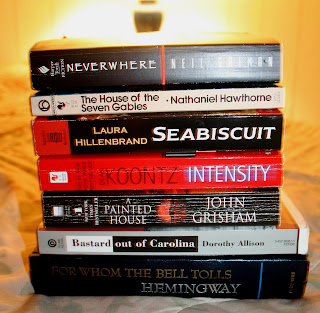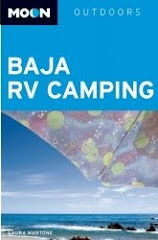 After all, The Time Traveler’s Wife isn’t the only current movie inspired by well-known literature. Right now, moviegoers can catch Julie & Julia and Harry Potter and the Half-Blood Prince – both of which were adapted from recent bestsellers – in a theater near them. Several other adaptations of popular novels – from Cormac McCarthy’s The Road, Stephenie Meyer’s New Moon, and Alice Sebold’s The Lovely Bones, to children’s favorites like Maurice Sendak’s Where the Wild Things Are, Roald Dahl’s Fantastic Mr. Fox, and Lewis Carroll’s Alice in Wonderland – will soon hit theaters as well. And do remember that The Reader – which was adapted from Bernhard Schlink’s well-favored book – was nominated for numerous Academy Awards earlier this year.
After all, The Time Traveler’s Wife isn’t the only current movie inspired by well-known literature. Right now, moviegoers can catch Julie & Julia and Harry Potter and the Half-Blood Prince – both of which were adapted from recent bestsellers – in a theater near them. Several other adaptations of popular novels – from Cormac McCarthy’s The Road, Stephenie Meyer’s New Moon, and Alice Sebold’s The Lovely Bones, to children’s favorites like Maurice Sendak’s Where the Wild Things Are, Roald Dahl’s Fantastic Mr. Fox, and Lewis Carroll’s Alice in Wonderland – will soon hit theaters as well. And do remember that The Reader – which was adapted from Bernhard Schlink’s well-favored book – was nominated for numerous Academy Awards earlier this year.As someone who studied both film and literature in college – and who hopes to turn her future novels into screenplays – I am indeed in favor of cinematic adaptations – if they are done well and with the spirit of the source material in mind. Novels, after all, provide the three elements key to any engaging film – character, setting, and plot – and they usually offer a built-in audience (which studio executives naturally love). Of course, I realize that most novels must be edited to suit the typical two-hour movie length. One of my all-time favorite trilogies, The Lord of the Rings, was simply too long to avoid being shaved a bit for the three cinematic adaptations, but even though I missed hearing the hobbits’ folk songs, I felt that Peter Jackson and his producing partners (not to mention the cast and crew) did an amazing job of bringing J. R. R. Tolkien’s beloved saga to life – and, in my humble opinion, deserved more than just the one Best Picture Oscar (for the final installment, The Return of the King).
 Other favorite adaptations include Rebecca (1940), Rosemary’s Baby (1968), The Exorcist (1973), Jaws (1975), The Princess Bride (1987), Dances with Wolves (1990), Interview with the Vampire (1994), The Green Mile (1999), Wonder Boys (2000), and The Jane Austen Book Club (2007) – all of which are slightly better than the source material. My absolute favorite adaptation, however, is The Shawshank Redemption (1994) – which faithfully follows Stephen King’s novella Rita Hayworth and the Shawshank Redemption, line by line and scene by scene. There are plenty of other well-done adaptations that I could cite here – from The Grapes of Wrath (1940) to What's Eating Gilbert Grape? (1993) – but I hesitate to fill this post with a laundry list of classics.
Other favorite adaptations include Rebecca (1940), Rosemary’s Baby (1968), The Exorcist (1973), Jaws (1975), The Princess Bride (1987), Dances with Wolves (1990), Interview with the Vampire (1994), The Green Mile (1999), Wonder Boys (2000), and The Jane Austen Book Club (2007) – all of which are slightly better than the source material. My absolute favorite adaptation, however, is The Shawshank Redemption (1994) – which faithfully follows Stephen King’s novella Rita Hayworth and the Shawshank Redemption, line by line and scene by scene. There are plenty of other well-done adaptations that I could cite here – from The Grapes of Wrath (1940) to What's Eating Gilbert Grape? (1993) – but I hesitate to fill this post with a laundry list of classics. Of course, not all adaptations have turned out so well. Three such films come to mind – Heaven’s Prisoners (1996), an adaptation of James Lee Burke’s second Dave Robicheaux mystery, with Alec Baldwin terribly miscast as the Cajun ex-detective; The Cider House Rules (1999), which, save for Michael Caine’s stirring performance, seemed flatter than the John Irving novel; and Charlie and the Chocolate Factory (2005), which convinced me that Tim Burton has no business adapting beloved children's books, including his upcoming Alice in Wonderland. I'm sure there are more book-to-film travesties, but their names escape me at the moment.
Of course, not all adaptations have turned out so well. Three such films come to mind – Heaven’s Prisoners (1996), an adaptation of James Lee Burke’s second Dave Robicheaux mystery, with Alec Baldwin terribly miscast as the Cajun ex-detective; The Cider House Rules (1999), which, save for Michael Caine’s stirring performance, seemed flatter than the John Irving novel; and Charlie and the Chocolate Factory (2005), which convinced me that Tim Burton has no business adapting beloved children's books, including his upcoming Alice in Wonderland. I'm sure there are more book-to-film travesties, but their names escape me at the moment. Given Hollywood's tendency to remake classic films or turn beloved books and television shows into movies, it's a wonder that executives haven't yet adapted every book imaginable. But, surprisingly, they haven't. One treasured book – John Kennedy Toole's Pulitzer Prize-winning A Confederacy of Dunces – has yet to be made, despite numerous attempts to do so (with stars like John Belushi, John Candy, Chris Farley, and Will Ferrell set to play Ignatius J. Reilly).
Given Hollywood's tendency to remake classic films or turn beloved books and television shows into movies, it's a wonder that executives haven't yet adapted every book imaginable. But, surprisingly, they haven't. One treasured book – John Kennedy Toole's Pulitzer Prize-winning A Confederacy of Dunces – has yet to be made, despite numerous attempts to do so (with stars like John Belushi, John Candy, Chris Farley, and Will Ferrell set to play Ignatius J. Reilly). Taking a cue from my online pal Rhonda’s “Books as Movies: Picture It” post from last month, I’m curious about other writers’ take on Hollywood’s book-to-movie obsession. Do you think that, overall, novels and memoirs provide good source material for movies? If so, which adaptations are the best? Which are the worst? And which books would you still like to see become movies?
Taking a cue from my online pal Rhonda’s “Books as Movies: Picture It” post from last month, I’m curious about other writers’ take on Hollywood’s book-to-movie obsession. Do you think that, overall, novels and memoirs provide good source material for movies? If so, which adaptations are the best? Which are the worst? And which books would you still like to see become movies?











2 comments:
Wow, excellent post! I think good novels and memoirs are an excellent source for film material. I would much rather see a film based on a novel than see just another Hollywood remake. It seems these days, Hollywood looks up some classic film and decides to regurgitate it with younger actors and new technology. When I read a good book and the world the author created is so tangible I don't want the book to end, sometimes I think it would make a great film. But I would hope the creator of that world would have a say in it, but realistically, I know better.
Hi, Brit! I agree with you - better to use great books as inspiration for movies than to retread previous ground. But, like you, I hope that the author has a say in the film. If only that were standard in Hollywood!
Post a Comment